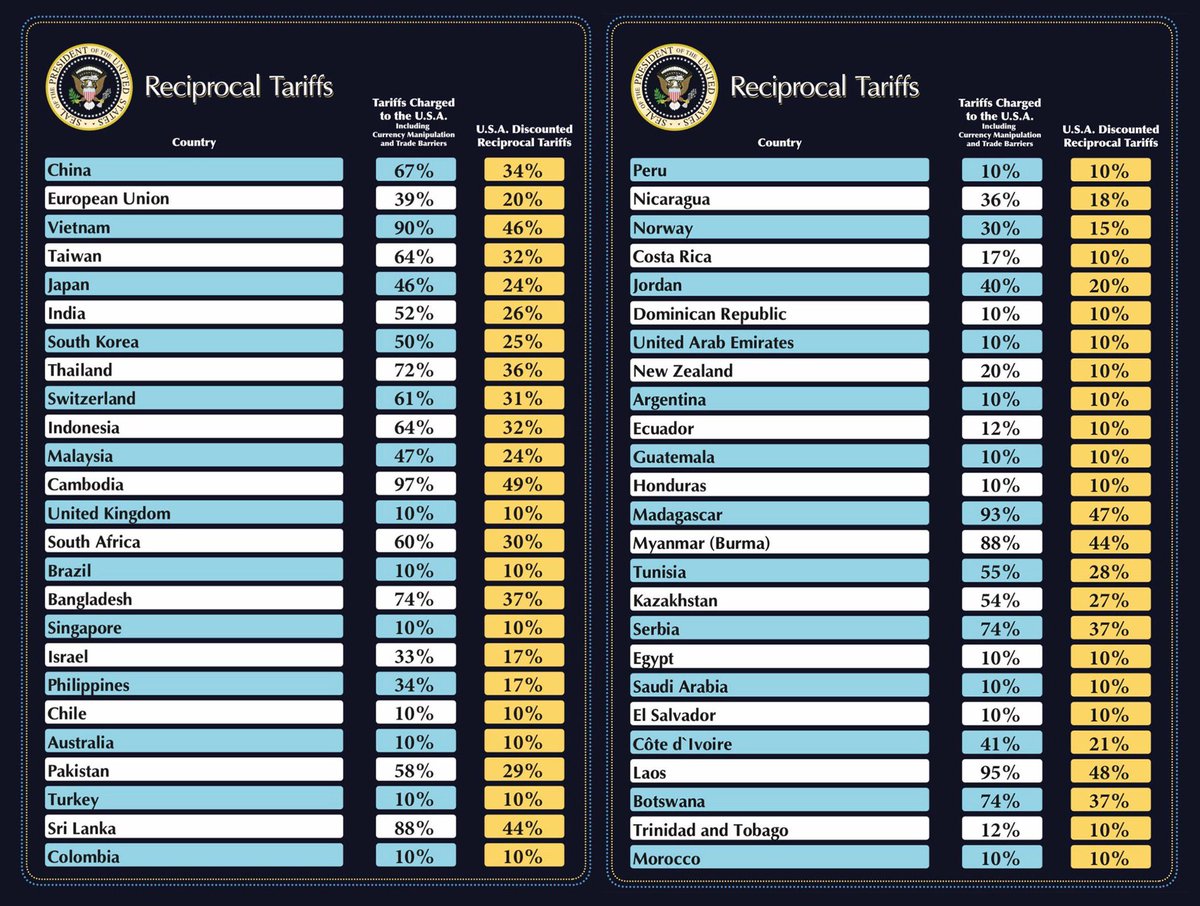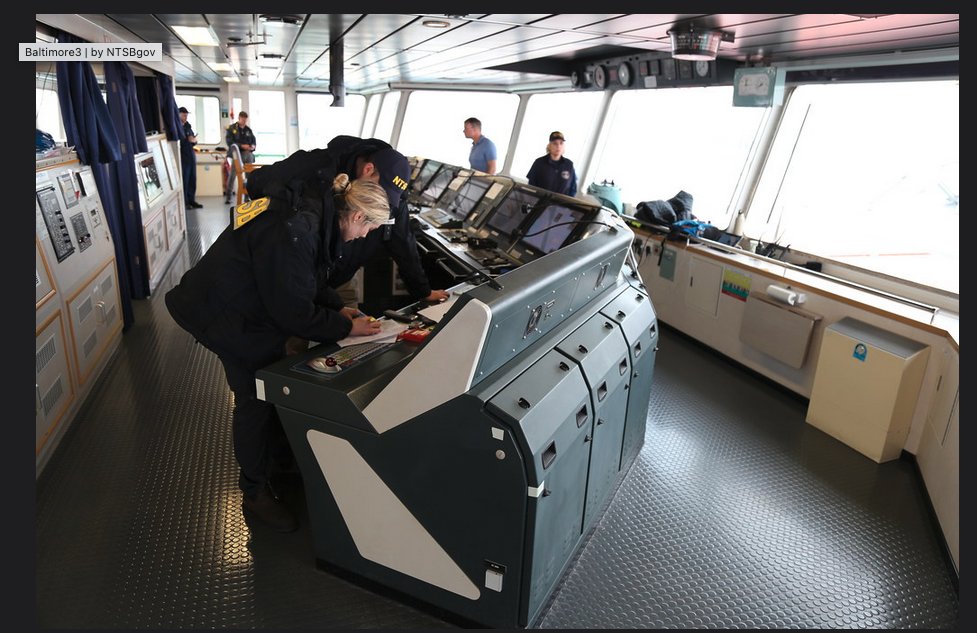Could Trump's tariffs spark a US factory & manufacturing renaissance?
Let's say they do.
Here's the problem, even if we double the number of factories the US has now. Even if we—somehow—start making microwave ovens and pleated-front chinos and pillow cases in the US again.
—>
Let's say they do.
Here's the problem, even if we double the number of factories the US has now. Even if we—somehow—start making microwave ovens and pleated-front chinos and pillow cases in the US again.
—>
2/ There won't be many jobs.
Factory automation for routine, repetitive manufacturing is very far along.
It's so widespread that there's a phrase in the manufacturing world:
'Lights-out factories.'
…Factories with so few people, they keep the lights off.
—>
Factory automation for routine, repetitive manufacturing is very far along.
It's so widespread that there's a phrase in the manufacturing world:
'Lights-out factories.'
…Factories with so few people, they keep the lights off.
—>
3/ Machines don't need lights. So many big companies—including consumer products companies like Unilever, Procter & Gamble, Foxconn—run factories with just a scattering of staff who monitor the machines.
Like in a quiet office, the lights only come on when a person walks in.
—>
Like in a quiet office, the lights only come on when a person walks in.
—>
4/ Story:
At some point, I became slightly obsessed with visiting a P&G Bounty paper towel factory. To be honest, I can't remember why. I must have had a reason, because I chased it for quite a while.
—>
At some point, I became slightly obsessed with visiting a P&G Bounty paper towel factory. To be honest, I can't remember why. I must have had a reason, because I chased it for quite a while.
—>
5/ Eventually an exhausted media person at Bounty connected me to a factory manager at Bounty's Albany, GA, factory.
Yes! I was in!
I talked to the guy. He was gracious, he was puzzled, he simply said, in 4 different ways, over and over again: 'There's nothing to see.'
—>
Yes! I was in!
I talked to the guy. He was gracious, he was puzzled, he simply said, in 4 different ways, over and over again: 'There's nothing to see.'
—>
6/ There's no people, he said. We keep the lights off. There's a factory floor covering 5 football fields, & there's about 6 people a shift walking through & sitting in control rooms watching screens.
He didn't say, No you can't come. But he was saying, No, you can't come.
—>
He didn't say, No you can't come. But he was saying, No, you can't come.
—>
7/ Of course, I would have LOVED to visit, and even write exactly that story: The paper towels MAKE THEMSELVES.
But I clearly wasn't going to crack the guy.
I was sad. (Hey, @ProcterGamble & @Bounty — I'd still love to go write that story!)
That was 20 years ago.
—>
But I clearly wasn't going to crack the guy.
I was sad. (Hey, @ProcterGamble & @Bounty — I'd still love to go write that story!)
That was 20 years ago.
—>
8/ Let's be honest & clear:
We're never going to make microwave ovens ($49.99) & pleat-front chinos ($34.99) & pillow cases (4 for $6.99) in the US again.
We want them too cheap.
Consider this:
That $50 China-made microwave at WMT? You can't mail it back to China for $50.
—>
We're never going to make microwave ovens ($49.99) & pleat-front chinos ($34.99) & pillow cases (4 for $6.99) in the US again.
We want them too cheap.
Consider this:
That $50 China-made microwave at WMT? You can't mail it back to China for $50.
—>
9/ They manage to gather the raw materials, turn them in to parts, transport parts to a factory, assemble them into a microwave, box the microwave & ship it to the US—paying for materials & people all the way along, and make a profit!—cheaper than we could ship the box back.
—>
—>
10/ We make all kinds of things. Technology. Advanced pharmaceuticals. Software. And yes—paper towels (it's too expensive to ship something id such volume from low-cost countries).
Even with crazy tariffs, the consumer products that have migrated away will not come back.
—>
Even with crazy tariffs, the consumer products that have migrated away will not come back.
—>
11/ Even if AI & robots manage to cut the cost to make things dramatically, well, like the paper towel factory, those new factories will employ 90% fewer people every day than...say...the number of people it took to building them for 9 months.
Very lightly staffed.
So, again —>
Very lightly staffed.
So, again —>
12/ It's just not clear, in economic terms, what Pres. Trump thinks the ideal outcome of the tariffs is.
We can't compete with Vietnam, nor should we.
We can partner with them, & with Mexico & Canada & China.
> 'Lights-out factories.'
Bit of a sad economic double entendre.
We can't compete with Vietnam, nor should we.
We can partner with them, & with Mexico & Canada & China.
> 'Lights-out factories.'
Bit of a sad economic double entendre.
• • •
Missing some Tweet in this thread? You can try to
force a refresh







